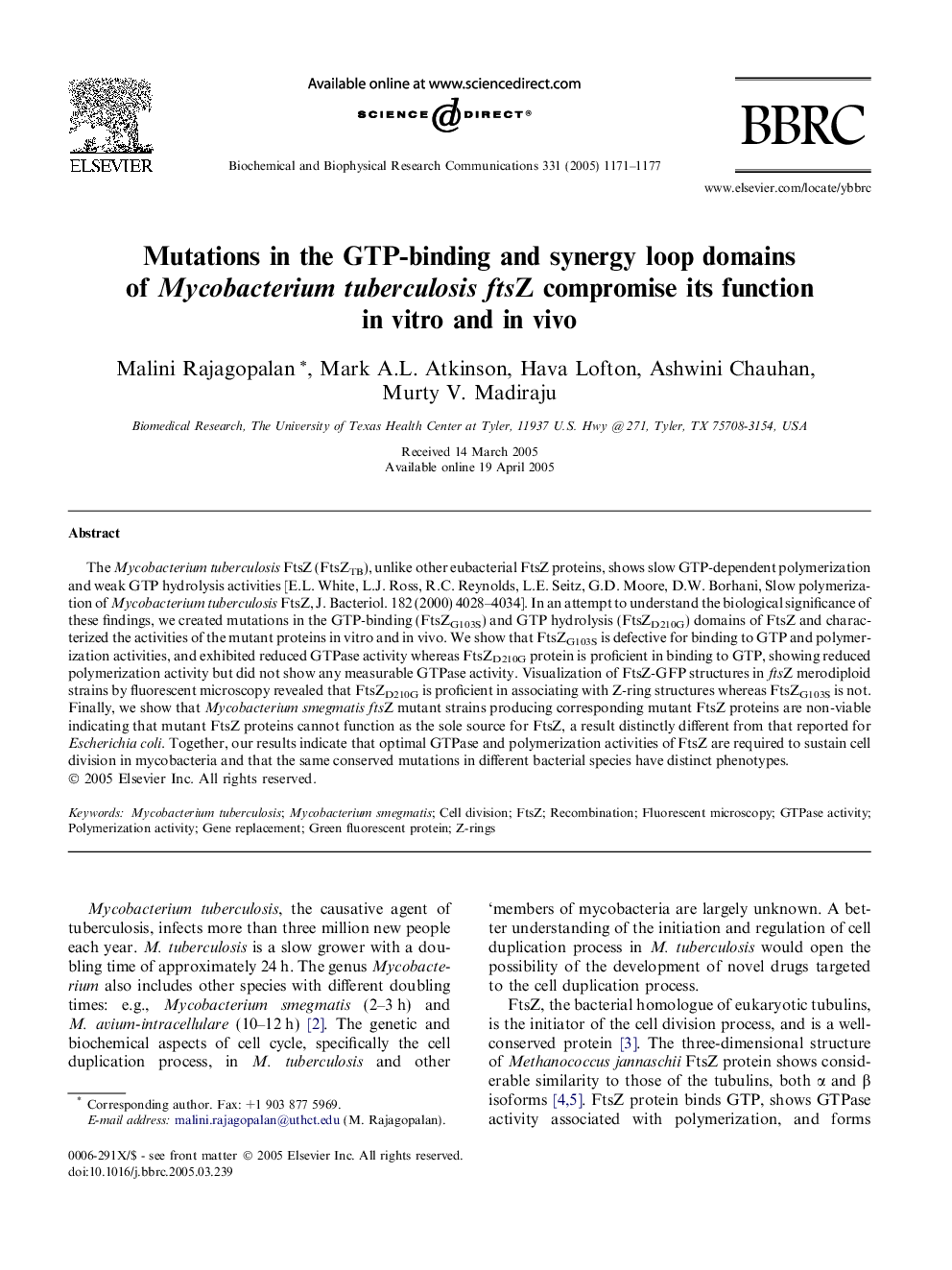| Article ID | Journal | Published Year | Pages | File Type |
|---|---|---|---|---|
| 10770413 | Biochemical and Biophysical Research Communications | 2005 | 7 Pages |
Abstract
The Mycobacterium tuberculosis FtsZ (FtsZTB), unlike other eubacterial FtsZ proteins, shows slow GTP-dependent polymerization and weak GTP hydrolysis activities [E.L. White, L.J. Ross, R.C. Reynolds, L.E. Seitz, G.D. Moore, D.W. Borhani, Slow polymerization of Mycobacterium tuberculosis FtsZ, J. Bacteriol. 182 (2000) 4028-4034]. In an attempt to understand the biological significance of these findings, we created mutations in the GTP-binding (FtsZG103S) and GTP hydrolysis (FtsZD210G) domains of FtsZ and characterized the activities of the mutant proteins in vitro and in vivo. We show that FtsZG103S is defective for binding to GTP and polymerization activities, and exhibited reduced GTPase activity whereas FtsZD210G protein is proficient in binding to GTP, showing reduced polymerization activity but did not show any measurable GTPase activity. Visualization of FtsZ-GFP structures in ftsZ merodiploid strains by fluorescent microscopy revealed that FtsZD210G is proficient in associating with Z-ring structures whereas FtsZG103S is not. Finally, we show that Mycobacterium smegmatis ftsZ mutant strains producing corresponding mutant FtsZ proteins are non-viable indicating that mutant FtsZ proteins cannot function as the sole source for FtsZ, a result distinctly different from that reported for Escherichia coli. Together, our results indicate that optimal GTPase and polymerization activities of FtsZ are required to sustain cell division in mycobacteria and that the same conserved mutations in different bacterial species have distinct phenotypes.
Keywords
Related Topics
Life Sciences
Biochemistry, Genetics and Molecular Biology
Biochemistry
Authors
Malini Rajagopalan, Mark A.L. Atkinson, Hava Lofton, Ashwini Chauhan, Murty V. Madiraju,
